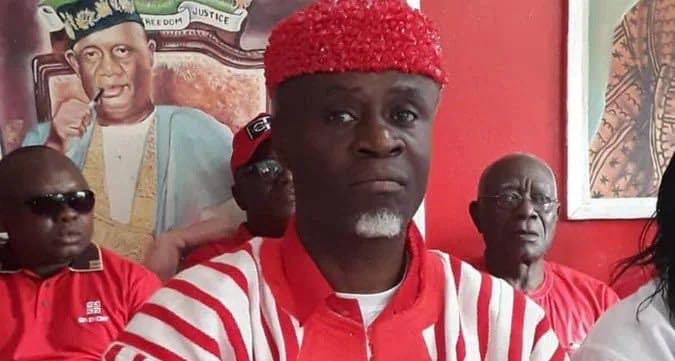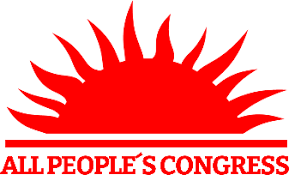BY Mackie M. Jalloh
The political climate in Sierra Leone has been shaken by alarming allegations linking top government officials to international drug trafficking networks. The opposition All People’s Congress (APC) has issued a scathing press release, calling for urgent action to address what it describes as a growing crisis that threatens national security, public trust, and the country’s international reputation.
At the heart of the scandal is the recent seizure of illicit drugs from a vehicle reportedly linked to the Sierra Leone Ambassador to Guinea. Guinean authorities made the discovery, sending shockwaves across the region and raising serious questions about the complicity of state actors in organized crime. This revelation is compounded by claims that convicted European drug trafficker Jos Bolle maintains close ties with high-ranking government officials, including members of the First Family.
But these are not isolated incidents. The APC points to a series of unresolved drug-related cases that have cast a dark shadow over the government’s commitment to combating narcotics trafficking. Among them:
• A mysterious shipping container from Brazil, suspected of carrying narcotics, which vanished without proper investigation.
• An aircraft that landed under suspicious circumstances at Lungi International Airport, with no clear explanation from authorities.
• A major drug bust in the United Kingdom, where cocaine concealed as garri (a staple West African food) was intercepted, allegedly originating from Sierra Leone.
• The alleged protection of Jos Bolle by influential figures within the government, allowing him to operate freely despite his criminal background.
These incidents, according to the APC, indicate a pattern of state complicity—or, at the very least, gross negligence. The party argues that if these allegations are not thoroughly investigated, Sierra Leone risks becoming a haven for drug cartels, further endangering the country’s youth, whose lives are already being destroyed by the rising tide of substance abuse.
In response to these revelations, the APC is making five key demands:
1. An Independent Investigation – The opposition insists on a transparent, internationally monitored probe involving organizations like the United Nations Office on Drugs and Crime (UNODC) and ECOWAS. The APC does not trust the government to investigate itself and argues that only an independent body can ensure impartiality.
2. Accountability and Prosecution – The party calls for legal action against anyone, regardless of their political status, found complicit in drug trafficking. The APC wants arrests, trials, and convictions—not just empty promises.
3. Public Disclosure – Sierra Leoneans deserve to know the truth, the APC says. The government must disclose all findings related to past drug busts, including the intercepted drugs in Guinea, the Lungi Airport aircraft, and the Brazilian container.
4. Whistleblower Protection – Individuals with credible information should be shielded from retaliation. The APC argues that fear of government persecution prevents many from coming forward with critical evidence.
5. Stronger Border Security – Given Sierra Leone’s growing role in international drug routes, the APC is demanding immediate investments in modern surveillance technology at ports, airports, and land borders.
For the APC, this is more than just a political issue; it is a fight for the soul of Sierra Leone. The party warns that failure to address these allegations could have devastating consequences. Foreign investment may dry up, international trust in the government could erode, and Sierra Leone’s youth could fall deeper into the abyss of drug addiction.
The opposition’s stance has sparked reactions across the country. Civil society organizations are beginning to weigh in, with some calling for nationwide protests if the government fails to act. International observers, too, are closely monitoring the situation, particularly as Sierra Leone struggles to maintain its fragile reputation on the global stage.
Meanwhile, the government has remained largely silent on the matter, fueling suspicions that it has something to hide. If the administration hopes to restore public confidence, it will need to respond decisively—either by proving its innocence or taking swift action against those involved.
As the controversy unfolds, one thing is clear: the people of Sierra Leone are demanding answers. Whether the government provides them willingly or is forced to do so remains to be seen.













